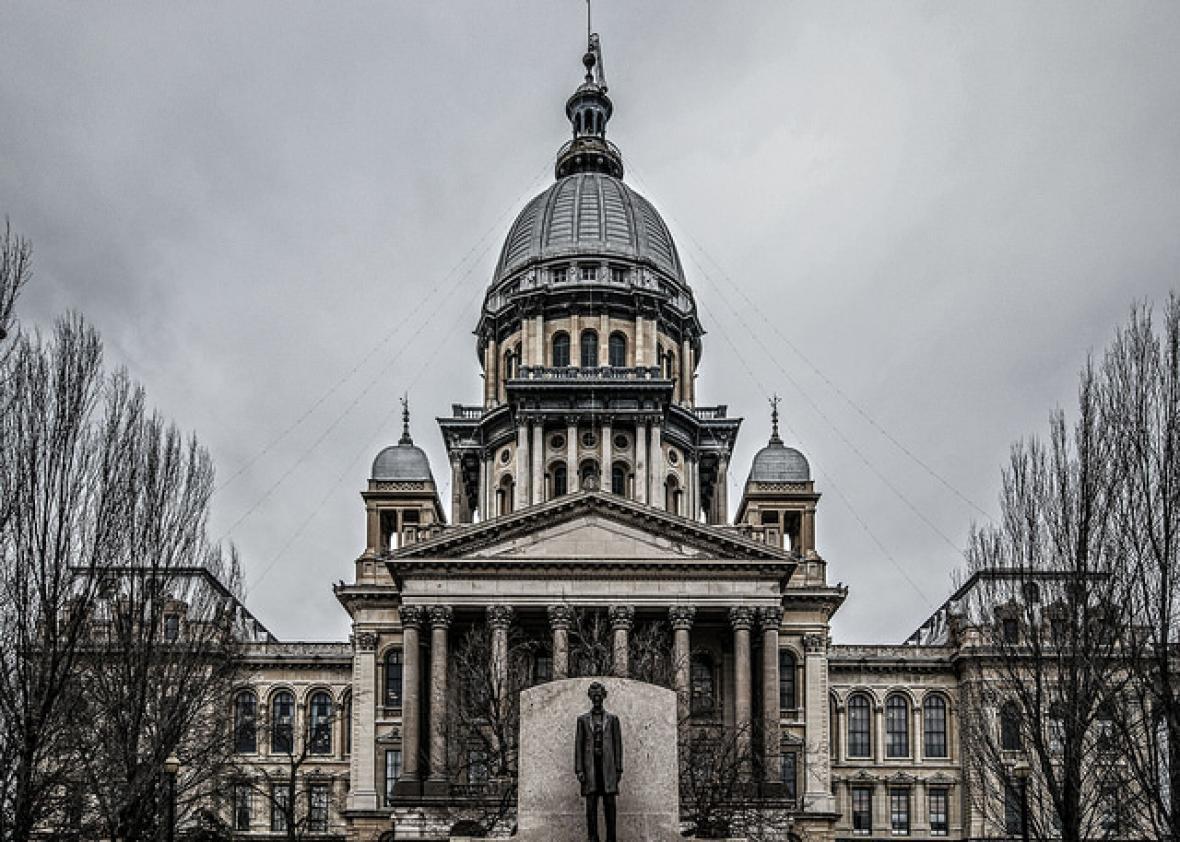On Wednesday, the Illinois House of Representatives unanimously passed a bill prohibiting the “gay panic” defense, which allows alleged murderers to defend their actions in court by arguing that their victim’s sexual orientation “triggered” their crime. The bill also bars the “trans panic” defense, which alleged murderers may use to justify the killing of a trans person on the grounds that they were triggered by their victim’s gender identity.
The state Senate already passed the measure unanimously; it now goes to Republican Gov. Bruce Rauner, who is expected to sign the bill. Once he does, Illinois will become the second state in the country to ban the gay and trans panic defense. Only California currently outlaws the tactic, although the American Bar Association called for its abolition in 2013. In Illinois, the defense has been used rarely; its most recent appearance came in 2009, when a jury acquitted a man of first-degree murder after he stabbed his gay neighbor 61 times. The tactic has also been used by Americans abroad, including servicemembers: In 2015, a United States Marine successfully deployed the trans panic defense in the Philippines after strangling a trans sex worker to death. He argued that his victim had deceived him by failing to disclose her gender identity, mitigating his culpability.
Shortly after the Illinois bill passed, I spoke to Anthony Michael Kreis, a law professor at Chicago-Kent College of Law (and a Slate contributor) who drafted the bill, SB 1761, and provided testimony to the General Assembly.
“This historic vote is an important advancement for LGBTQ civil rights,” Kreis told me. “It sends a clear message—at a time when LGBTQ people are disproportionately targeted as victims of violent crimes—that no person’s sexual identity is a valid reason to inflict harm. SB 1761 reaffirms the law’s commitment in Illinois to guarantee equal citizenship for LGBT persons and to safeguard all LGBTQ persons’ dignity.”
Illinois has lately become a leader in LGBTQ rights: The state already prohibits gay and trans “conversion therapy” for minors, and the state Senate voted on Wednesday to let trans individuals correct their birth certificates without undergoing surgery. The legislature also passed a measure promoting LGBTQ diversity in the state government. It’s not clear whether Rauner will sign those latter two bills, although he did approve the measure prohibiting conversion therapy in 2015. (A full half of state bans on the practice of conversion therapy were signed by Republican governors, indicating a growing consensus that crosses party lines.)
Mike Ziri, the director of public policy at Equality Illinois—which played a crucial role in the passage of SB 1761—told me on Thursday that he sees broad “bipartisan support in Illinois for LGBTQ civil rights.”
“We are extremely proud the bill passed unanimously through both chambers,” Ziri said. “Initiatives like the panic defense ban show how states are pursuing innovative approaches to advance LGBTQ inclusion and equality.”
Ziri added that SB 1761 “should also be placed in the context of violence against LGBTQ people.”
“At a time when one-fifth of hate crimes reported to the FBI are because of the victim’s sexual orientation or gender identity,” he told me, “we were determined to ensure that stigma does not carry over into the courtroom” in Illinois.
Mission accomplished.
